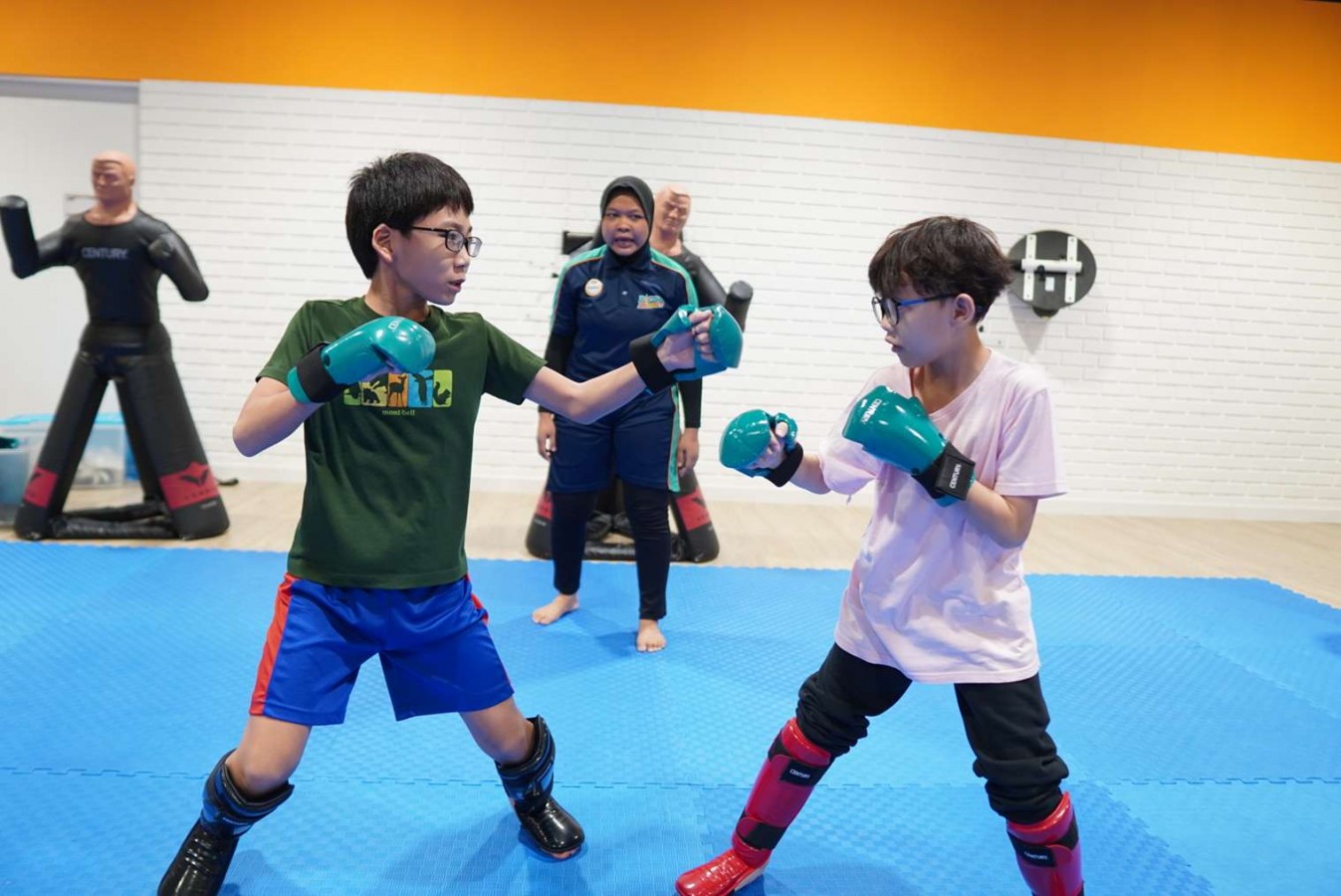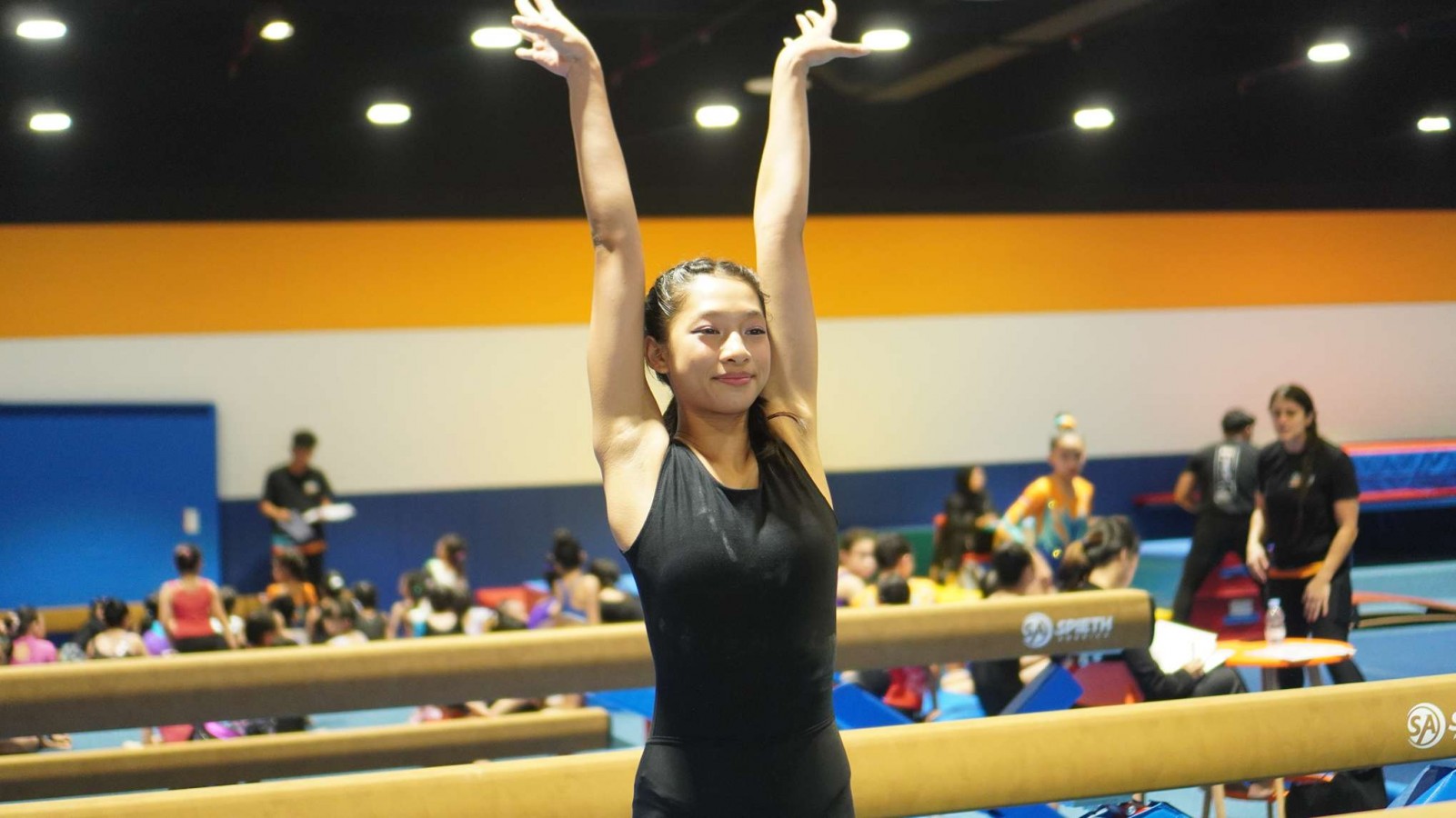A Guide to Muay Thai Sparring: Level Up Your Skills!

People often forget that Muay Thai sparring is actually one of the most beneficial parts of training. Sure, throwing powerful kicks and elbow strikes on a pad looks cool, but sparring is where you truly test yourself.
In this guide, we’ll dive into what Muay Thai sparring really is, the basic etiquette you should follow, and 10 practical tips to make the most out of your sparring sessions so you can sharpen your skills and gain real fighting experience.
What is Muay Thai Sparring?
Muay Thai sparring is a form of training where two practitioners simulate a fight, but without the full intensity of an actual match. Think of it like a practice of the moves, timing, and reactions, but you’re not going for a knockout.
The goal of sparring isn’t to hurt your partner. Instead, it’s to:
- Practice techniques you’ve learned in class.
- Test your timing and distance against a moving opponent.
- Build confidence by applying skills in real time.
- Develop fight IQ—knowing when to attack, defend, or counter.
It’s one of the most effective ways to bridge the gap between hitting pads or bags and real fighting.
Basic Etiquette for Muay Thai Sparring
Before you jump into throwing kicks and punches, it’s important to understand sparring etiquette. Respect and discipline are at the heart of Muay Thai, and sparring is no different. Here are the golden rules:
A. Respect Your Partner
Remember, sparring isn’t about showing off or proving who’s stronger. You and your partner are there to help each other improve.
B. Control Your Power
Sparring should be at around 40–60% of your strength. If you go too hard, your partner may retaliate harder, and it can spiral into a fight—something you don’t want in training.
C. Listen to Your Coach
Coaches will often guide sparring, telling you what to focus on (like working your jab or checking kicks). Pay attention and apply their advice.
D. Tap Gloves Before and After
This simple gesture shows respect and signals the start and end of a session.
E. Don’t Get Emotional
Sparring isn’t personal. Even if you get hit harder than expected, keep calm and stay focused.
F. Give Feedback if Needed
If something feels too intense, don’t hesitate to let your partner know politely. Communication prevents accidents and builds trust.
10 Tips to Maximize Your Muay Thai Sparring
Now that you know the basics, let’s level up! Here are ten tips to help you get the most out of your sparring sessions and truly build fight-ready skills.
1. Warm Up Properly
Skipping your warm-up before sparring is like jumping into a car race without checking the engine. Not a good idea, right? A proper warm-up gets your blood flowing, loosens up your joints, and prepares your muscles for fast reactions.
Start with light cardio, then stretch your hips, shoulders, and legs since they’ll take the most action. Add a quick shadowboxing round to wake up your brain and practice your muay thai combos before the real test. A warm body moves better, reacts quicker, and is far less likely to get injured.
2. Focus on Technique, Not Power
One of the biggest beginner mistakes is treating sparring like a fight. You don’t need to throw 100% power every time you strike. In fact, sparring is your chance to polish your moves and test them in real situations.
Focus on being smooth and accurate. You can try placing your kicks exactly on the target or snapping your jab right down the middle.
3. Work on Your Defense
Here’s a little secret: good fighters aren’t just great at attacking, they’re even better at not getting hit. Sparring gives you the perfect chance to sharpen your defense.
Don’t ignore these defensive skills because they build your confidence. When you know you can defend yourself, you’ll stay calm, think clearer, and avoid panicking when strikes come your way.
4. Control Your Breathing
Breathing sounds simple, but under pressure, many beginners forget to do it correctly. They tense up, hold their breath, and suddenly feel like they’re drowning in exhaustion. The fix? Stay mindful of your breathing rhythm.
Inhale through your nose, exhale through your mouth, and let out a sharp breath every time you strike. This not only keeps your stamina up but also makes your strikes sharper and snappier.
5. Mix Up Your Strikes
If you throw the same jab-cross-kick combo again and again, your partner will catch on, and you’ll feel stuck. Sparring is the best time to experiment with variety. Try mixing punches with knees, or feinting a low kick before going high.
Don’t be afraid to test different angles and combinations. By keeping your strikes unpredictable, you’ll train yourself to be creative and force your opponent to stay on their toes.
6. Learn to Read Your Opponent
Muay Thai sparring isn’t about mindlessly throwing strikes. Every fighter has habits, and your job is to notice them. Does your partner drop their guard after throwing a body kick? Do they always step to the left when pressured? Small details like these give you openings for counters.
7. Stay Relaxed
Tension is your biggest enemy in sparring. If your shoulders are tight and your body is stiff, you’ll move slower, burn more energy, and telegraph your strikes. Instead, focus on staying loose. A relaxed body reacts faster, which gives you a big advantage.
8. Don’t Chase Knockouts
Sparring isn’t a real fight but it’s a training tool. Going for knockouts in sparring doesn’t make you look tough; it just makes you a bad partner. Instead, focus on landing controlled, clean shots. Treat every strike like a question: “Would this land in a real fight?”
If the answer is yes, you’re doing it right. Think of sparring as “tag with technique.” The goal is to practice, not to win. Keep your ego outside the ring, and your progress will skyrocket.
9. Ask for Feedback
You can’t always see your own mistakes in the heat of sparring. After a round, don’t be shy to ask your partner or coach, “Hey, what could I do better?” You’ll often get golden advice, like keeping your hands up, checking kicks quicker, or moving your feet more.
Feedback saves you from repeating the same mistakes over and over. The best fighters are those who stay humble and open to learning.
10. Review Your Sessions
The work doesn’t end when sparring is over. The best way to grow is to review your performance. If your gym allows it, record your rounds. Watching yourself on video can be eye-opening.
If recording isn’t possible, just take a few minutes after sparring to mentally note what worked and what didn’t. This reflection helps you come back stronger each time.
Ready for Muay Thai Sparring?
If your children are interested in Muay Thai, as parents you can enroll them in the martial arts program at Rockstar Academy, the best Sports & Performing Arts Academy that offers a wide range of physical activity programs.
At Rockstar Academy, students can take part in exciting events like RockOlympics, an incredible learning experience that helps them discover their true potential.
For those who want a more tailored approach, Rockstar also provides a Private Instruction Program, designed to deliver highly personalized skills-based training with constant feedback, progress reports, videos, and even weekly training exercises.
And the best part? You can sign up for a free trial class to experience it all firsthand before enrolling!
FAQ
Do I need to spar if I only train Muay Thai for fitness?
Not necessarily. If your goal is purely fitness or weight loss, sparring isn’t required. But if you want to truly learn the art and apply techniques, sparring is highly recommended.
How hard should I spar?
Most gyms recommend light to moderate intensity (40–60%). Enough to challenge you, but not enough to injure anyone.
Will muay thai sparring hurt?
You’ll feel contact, but it shouldn’t be painful if you and your partner control your strikes. Think of it more as a tap with gloves or shinguards.



